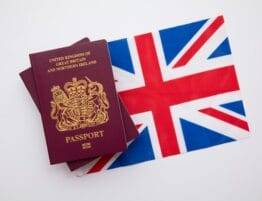
For decades, the UK has been a preferred destination for overseas entrepreneurs. For those with the drive and determination to establish an innovative and thriving business in the UK, there are 2 main points-based immigration routes: the Start-up visa and the Innovator visa. While both visas are similar, there are some key differences that applicants should be aware of. In this article, we will explain the main eligibility criteria and benefits for each visa, the differences between the two, and the important points to consider when choosing which visa to apply for.
Who are the Start-up visa and Innovator visas for?
The start-up visa is intended for overseas entry-level businesspeople who wish to come to the UK to establish a unique and innovative business here. The Innovator visa also allows overseas entrepreneurs to set up an innovative business in the UK, but it is geared towards those with more experience in business and investment capital.
How do the Start-up visa and Innovator visa eligibility requirements differ?
To make a successful application for a Start-up visa or Innovator visa, applicants must:
- Be 18 years or over
- Have a business plan that is endorsed by an approved UK endorsing body (these are business sector specific) as being new, innovative, and viable (i.e., has the potential for growth)
- Meet the English language requirements – applicants must be able to read, write, speak, and understand English to at least level B2 on the Common European Framework of Reference for Languages (CEFR) scale.
- Have sufficient savings to support themselves in the UK (£1270 or more held for 28 consecutive days before applying)
One of the main differences is that the Start-up visa does not require any investment funds, while Innovator visa holders must have at least £50,000 to invest in their business in the UK.
The second point of difference is how points are scored. Both visas require applicants to have at least 70 points, but whereas a Start-up visa applicant scores points for the business they intend to establish, Innovator visa applicants can score points for a new or existing business (but not both).
Start-up visa points are awarded as follows:
| Requirement (all must be met) | Points |
|---|---|
| Business endorsed as innovative, viable and scalable. | 25 |
| Not previously established a business in the UK | 25 |
| English Language at level B2 | 10 |
| Financial requirement | 10 |
Innovator visa points are awarded as follows:
| Requirement | New or same business | Points |
|---|---|---|
| Business plan | New Business | 10 |
| Business endorsed as innovative, viable and scalable. | New Business | 20 |
| £50,000 available to invest or has been invested | New Business | 20 |
| Applicant previously granted an Innovator, Start-up or Tier 1 (Graduate Entrepreneur) visa | Same Business | 10 |
| Business active, trading, sustainable, and meeting the main aims of the business plan | Same Business | 20 |
| Applicant is active in daily operation management and development of the business | Same Business | 20 |
| English Language requirement at level B2 | Mandatory for all applicants | 10 |
| Financial requirement (Note: you do not need investment funds if your business is already established and has been endorsed for an earlier visa, or if you have changed your business and already agreed to this change with your endorsing body) | Mandatory for all applicants | 10 |
Visa extensions and settlement
Another key consideration for business visa applicants is the ability to extend their visa and settle in the UK. The Start-up visa is granted for up to 2 years; however, this cannot be further extended, and it is not possible to gain settlement under this route. The Innovator visa, on the other hand, is granted for up to 3 years, can be further extended, and holders can apply for settlement (ILR) after their first 3 years. This makes the Innovator visa one of the fastest routes to gain UK ILR of all available visas.
Wrapping up
If you are an overseas entrepreneur with an innovative commercial idea, the UK is an extremely attractive and easy place to do business. While the Innovator route requires investment funds, it offers a considerable advantage over the Start-up visa with the ability to gain accelerated settlement after just 3 years (compared to 5 years for most visas). If you are not eligible for an Innovator visa, you can apply for a Start-up visa and later switch to an Innovator visa in the UK without the need to leave the UK and your newly established business venture.
Garth Coates is a leading niche immigration firm based in the heart of London, specialising in all forms of personal and business immigration, including visas, global mobility, sponsorship and compliance, settlement, and citizenship. To discuss your Start-up visa and the Innovator visa matter, please contact one of our friendly and approachable immigration Solicitors on Tel: +44 (0)20 7799 1600 or by completing our online contact form.









